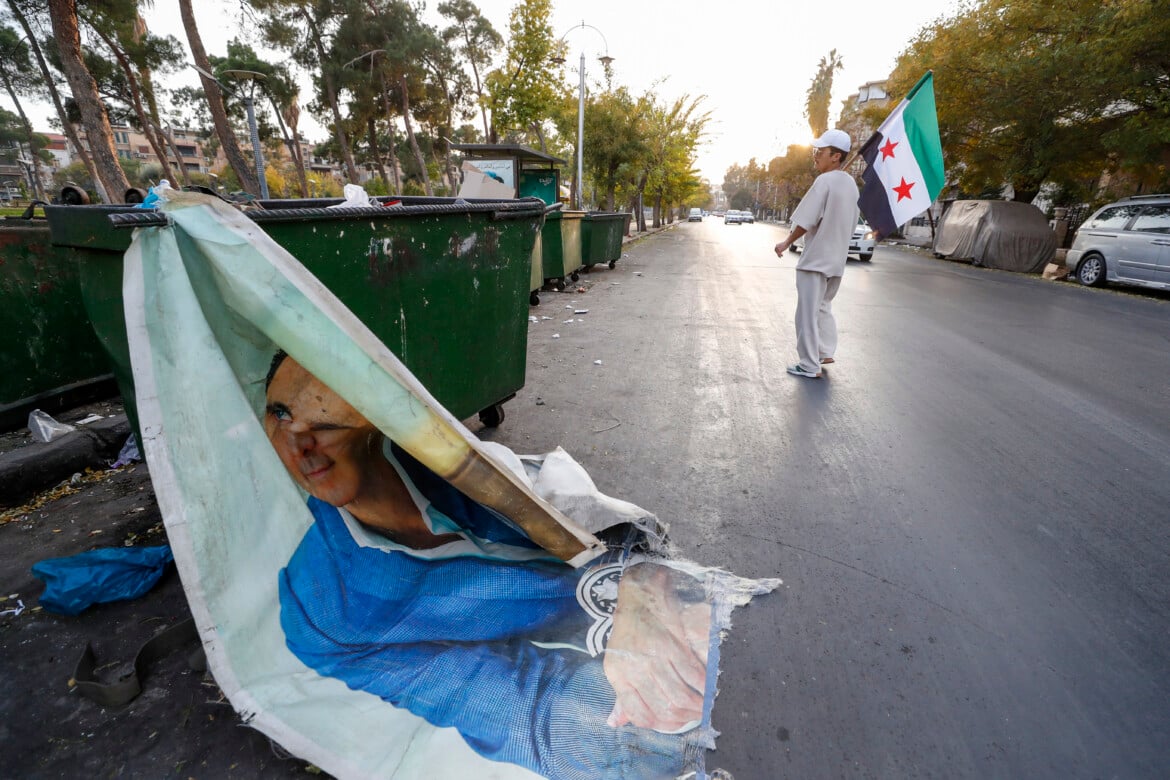Commentary
The old partition of Syria did not hold, and the new has already begun
Syria has been reduced to an empty box, as desertified as the abandoned corridors of Assad's palace, as devalued as the stacks of bills looted from the Central Bank of Damascus.

No one can emerge without skeletons in their closet from the civil war in Syria that has shattered the country into a thousand pieces, with millions of refugees: more than 12 million Syrians have had to leave their homes in recent years, half of them fleeing across the borders.
Some of the strongest and richest countries in the Arab world have disintegrated in one generation, and in Syria the regime crumbled without resistance: a positive sign – few casualties – but also a negative one, because it means that the state collapsed when its main sponsors, Russia, Iran and Hezbollah, abandoned it. This means that its army didn’t fight because it knew it was fighting for a clan, that of Assad, and no longer for a nation and a state. The army had dissolved, like the Iraqi army in 2014 in the face of ISIS, even before the offensive of HTS and its pro-Turkish allies: it had lost motivation, humiliated by intelligence services that treated the generals as lowly servants in the service of the ruling clan.
Syria has been reduced to an empty box, as desertified as the abandoned corridors of Assad's palace, as devalued as the stacks of bills looted from the Central Bank of Damascus.
It’s a sad ending, because together with the regime, the Baath Party has been reduced to history. Founded in Syria after WWII by a Greek Orthodox, Michel Aflaq, and a Sunni, Salah Bitar, the Baath Party ended up in the bloody hands of the Assads after Saddam Hussein's Iraqi one was dissolved by the U.S. together with the country’s army. Almost nothing remained of its original socialist and pan-Arab ideology – which in the 1960s brought the rise of the poorest out of the shackles of feudal institutions – except for the principle of secularism of the state. Someday, someone will remember it again.
Now, there is the same urgent problem we have seen many times before: regime change implies rebuilding the state, civil society and political society in a country already reduced to a kind of military patchwork housing great powers and a thousand factions. A new partition has already begun, after the previous one didn’t hold up.
Israel wants its “security strip,” and has begun moving in on the Syrian side of the Golan, to the south – which hasn’t happened since 1973 – and bombing every “useful” target: first it was the Iranian Pasdaran and Hezbollah, now it’s barracks, air bases and weapons depots, claiming that they must not fall into the hands of “hostile” groups. Among the hostiles, Israel did not name HTS, the Al Julani-led Salafist movement sponsored by Turkey, but it’s clear what the Jewish state is thinking: Syria, like Iraq and like Libya – and someday, perhaps, Iran – should not have a war machine that could threaten Israel in the slightest.
Israel is maximizing the war launched after Oct. 7: it knocked out the Shiite crescent, Hezbollah is being hammered daily in southern Lebanon, and it took out Iran's air defenses with the Oct. 26 attack. This was one of the reasons behind Assad’s fall, and the effects will soon be felt in Lebanon.
The fall of Assad has provoked strong reactions in Lebanon, a country with a long history of complicated relations with its Syrian neighbor. Lebanese politicians and religious leaders have commented on the event with statements reflecting not only the emotional reactions that arose after the end of the Syrian regime, but also the implications this may have for the future. With a fragile ceasefire, Lebanon has not yet emerged from the war, and, as in the past, it might be sucked into the maelstrom of internal conflicts.
The partition of Syria will see Turkey play a prominent role, a longtime sponsor of jihadist rebels. Erdogan, like Israel, wants to expand his “security strip” by at least 40 km to the outskirts of Aleppo and target the Kurds, who, in his view, must not have a state or even autonomy in Rojava. Intense armed clashes are ongoing in northern Syria on the border with Turkey between pro-Turkish factions and Kurdish opponents. The latter were also U.S. allies in the fight against the Caliphate, but Trump – who had previously abandoned them at the mercy of the Turks – says he doesn’t want to get involved. But the U.S., which has a contingent in Syria, is always a major player in the Middle East, and Turkey is a NATO country while Israel is the U.S.'s biggest ally. Only someone completely clueless could believe that they can look at the Middle East from atop a skyscraper, merely watching events unfold.
What does Al Julani actually control today, who named Mohammed al Bashir as the new Prime Minister promising that women will not have to wear headscarves and amnesty for soldiers? He controls a big slice of Syria, but not the Alawite, Druze and ISIS militias, or the Kurds. Most importantly, he will have to repay his debt to Erdogan. Syria faces daunting challenges, from its relationship with foreign powers to the return of refugees in a country where 80 percent are living below the poverty line. The risk is that the new rulers will only head a mini-Syria, always subjected to the nightmare of factional rivalry and partition.
Originally published at https://ilmanifesto.it/la-vecchia-spartizione-della-siria-non-ha-retto-e-gia-iniziata-la-nuova on 2024-12-10
